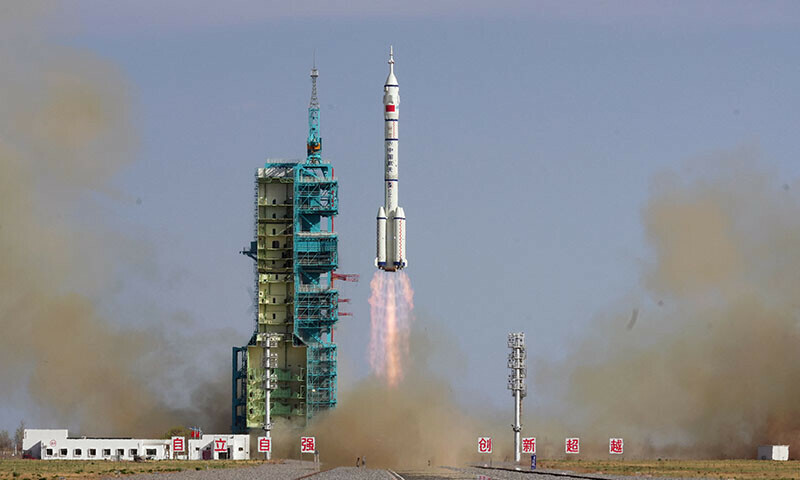WORLD NEWS

Jiuquan, China: China’s ambitious space program took another significant step forward on Thursday with the successful launch of the Shenzhou-20 mission. The Long March-2F rocket lifted off from the Jiuquan Satellite Launch Base in northwest China, propelling a crew of three astronauts on a six-month mission aboard the Tiangong space station.
This mission is a critical part of China’s growing space ambitions, spearheaded by President Xi Jinping’s “space dream,” which envisions a crewed mission to the Moon by the end of the decade, and eventually, a lunar base. The Shenzhou-20 crew will work on the Tiangong station, conducting experiments in life sciences, physics, and technology while installing equipment to protect against space debris.
The crew is led by 46-year-old Chen Dong, a former fighter pilot and seasoned astronaut who holds the record for being the first Chinese astronaut to spend over 200 cumulative days in orbit. Chen is joined by 40-year-old Chen Zhongrui, a former air force pilot, and 35-year-old Wang Jie, a space technology engineer, both of whom are on their first space missions.
Before the launch, hundreds of supporters gathered at the base, waving national flags and cheering on the astronauts. "We wish you success!" the crowd chanted as the astronauts boarded the bus to the launch site, underlining the nation’s pride in its growing space capabilities.
The astronauts' six-month mission will involve a variety of tasks, including conducting spacewalks, performing maintenance on Tiangong, and replenishing supplies. For the first time, the crew will also bring aboard planarians—small aquatic flatworms known for their remarkable regenerative abilities, which will be studied for potential applications in regenerative medicine.
The mission is another milestone in China’s rapidly advancing space program, which has already seen the successful landing of robotic rovers on the Moon and Mars. Excluded from the International Space Station (ISS) since 2011, China has established Tiangong as its primary space platform, with crews rotating every six months.
In addition to its own efforts, China is also seeking international partnerships. In February, China signed an agreement with Pakistan to train the first foreign astronauts to visit Tiangong, demonstrating the global aspirations of its space program.
With the Shenzhou-20 mission, China moves closer to achieving its long-term space goals, including the Moon landing and beyond. Tiangong, which means "celestial palace" in Chinese, serves as a testament to China’s technological prowess and its ambition to establish itself as a major player in space exploration.




